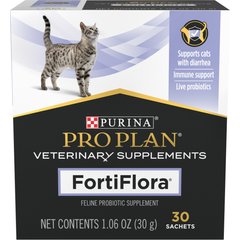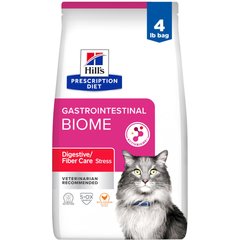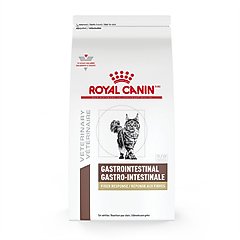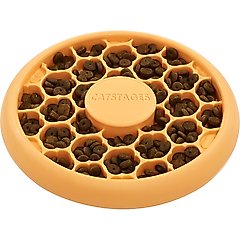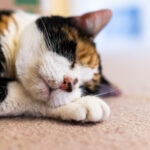Do Cats Fart?
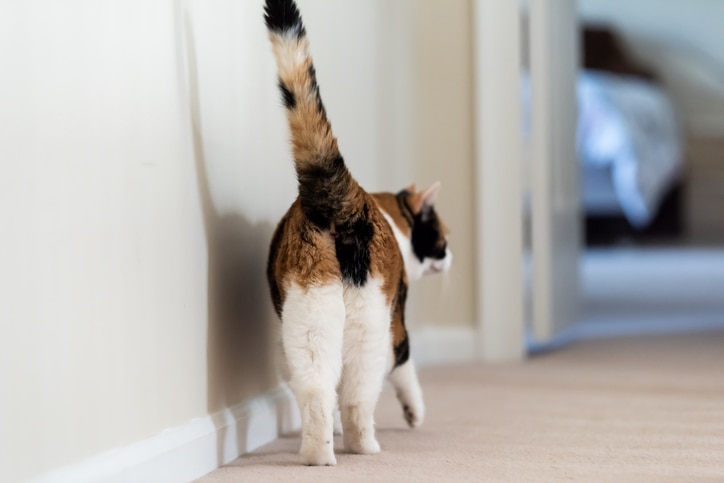
Photo by ablokhin/iStock/Getty Images Plus via Getty Images
Cats are such elegant creatures, it’s hard to imagine—or notice—them passing gas. Which begs the question: Do cats fart?
Like humans and dogs, cats can experience a buildup of gas in their digestive tract, which gets released from the body either as flatulence or a burp. Cat farts are perfectly natural! But if you find yourself with an extra gassy cat, that may be a sign of an underlying issue.
Key Takeaways:
- Cats do fart, and occasional flatulence is totally normal.
- Healthy cat farts are usually silent and odorless, making them easy to miss.
- Excessive or smelly gas in cats can be a red flag, especially if it’s accompanied by other symptoms like vomiting or diarrhea.
- Changes in diet, food sensitivities, and parasites are common causes of cat gas.
- Talk to your vet if you’re concerned about your cat’s farting.
Can Cats Fart?
Do cats break wind? Absolutely. Most mammals fart, and cats are no exception. While frequent flatulence might be a concern, a little gas here and there is a normal part of a cat’s life.
“Healthy cats can definitely flatulate every once in a while,” says Bruce Kornreich, DVM, PhD, ACVIM, and director of the Cornell Feline Health Center.
Farting in cats is often less noticeable than in other animals—such as dogs, for example—because a healthy cat’s flatulence tends to be quiet and odorless. That said, if you notice frequent, odorous, or noisy cat farts, there may be a health or dietary issue causing it.
So if you have a cat who makes you ask, “Why do cat farts smell so bad?” then it’s probably time to bring the issue to your veterinarian’s attention.
Why Does My Cat Fart So Much?
There’s no need to worry about your cat farting unless the frequency increases, the smell worsens, or it’s accompanied by other symptoms, Dr. Kornreich says. He recommends reaching out to your vet if vomiting, diarrhea, lethargy, or blood in the stool is present.
Health Concerns
Typically, the most likely cat gas culprits are dietary issues or parasites, says Lynn Bahr, DVM, CEO of Dezi & Roo.
When you make an appointment with your vet, they may ask you to bring in a fecal sample, which they will test for:
Each of these parasites can cause excessive gas in cats.
Your vet may also conduct a physical exam to check your kitty’s GI tract for signs of masses or tension, and look for signs of dehydration. If necessary, your vet may recommend blood work, biopsies, or X-rays to rule out more serious issues like intestinal diseases.
Diet
If your vet rules out health concerns, it’s time to look at your gassy cat’s diet.
“In many cases, it could be because of a change in food,” Dr. Kornreich says, either because you switched to a new cat food or because your cat food’s brand changed ingredients.
Some cats get gassier when they’re sneaking human food, either from the trash or from indulgent dinner guests. And sometimes it doesn’t take any change for a cat to develop a food sensitivity—especially when the cat is older.
“They can develop something called inflammatory bowel disease, which we think has some allergic component to it,” Dr. Kornreich says.
If it’s not the type of food causing the flatulence, it may be the way your cat eats. Overeating or eating too quickly can also cause more cat gas.
When you speak with your vet, be sure to mention details of your cat’s diet and eating habits so they can make an accurate diagnosis.
How To Reduce Farting and Help Your Gassy Cat
Does your cat fart enough to get your attention? If so, the first (and best!) thing you can do for them is to make a vet appointment. You’ll want to rule out any gastrointestinal health issues before looking at diet and lifestyle.
Depending on the results of the lab tests and physical exam, your vet may prescribe medications, probiotics, or a special diet to support your cat’s GI health.
Recommended Products
Whether or not your cat tests positive for parasites, Dr. Bahr suggests all cats be on a heartworm preventative.
“Having your cat on a heartworm preventative that also deworms is a great idea and a great way to eliminate that [concern],” she says.
If the issue appears to be diet-related, you’ll need to either change the food or change the way your cat’s eating, says Dr. Kornreich. An elimination diet can help you pinpoint which foods are causing extra gas for your kitty, while a farting cat who eats too fast could benefit from a slow feeder bowl.
Recommended Product
Dr. Bahr also recommends monitoring your cat’s bowel movements.
“If there are any abnormalities in the stools along with [the gas], then a veterinary checkup is definitely recommended,” she says.
So, can cats fart? Yes—and that’s totally normal. But if things seem a little stinkier than normal or if you notice other symptoms, the best thing to do for your furry friend is pay a visit to the vet.
